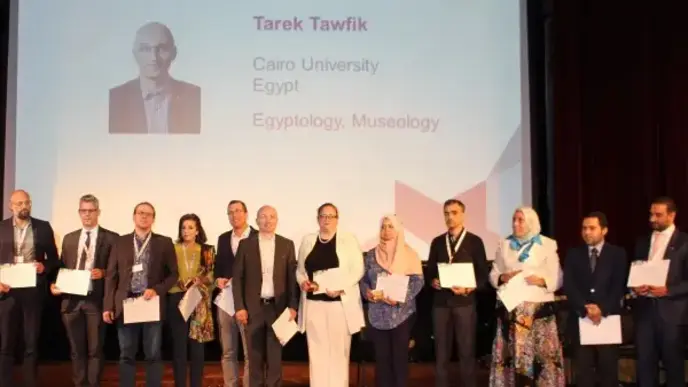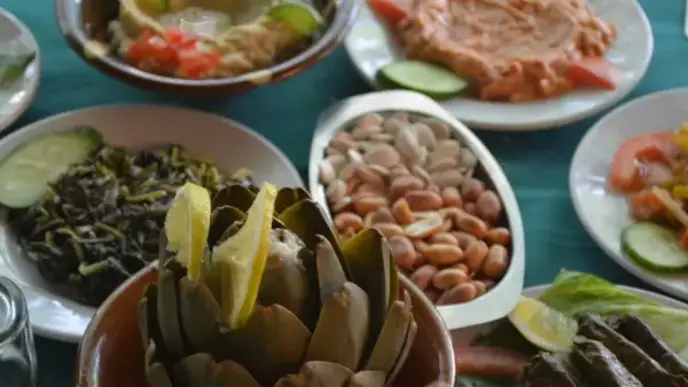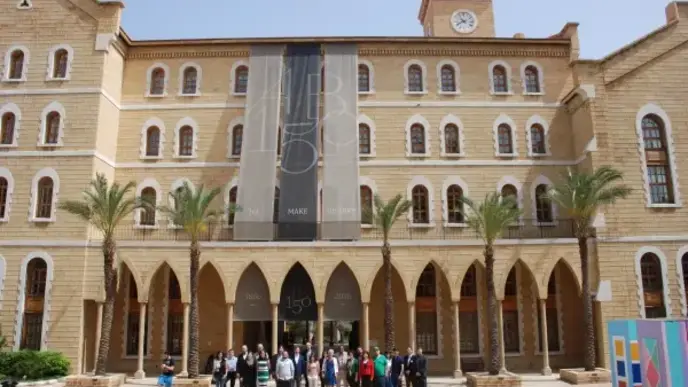AGYA’s Alumni Network Keeps Members Connected and Interdisciplinary Cooperation Flowing
AGYA’s Alumni Network Keeps Members Connected and Interdisciplinary Cooperation Flowing
In 2018, AGYA celebrated its five-year anniversary and the matriculation of the first generation of AGYA members into the AGYA Alumni Network. Going forward, the first batch of 20 AGYA alumni/alumnae will continue to benefit from connection and collaboration with the broader AGYA community. Active membership in AGYA lasts for a period of five years, but the personal and professional connections forged through intercultural exchange and interdisciplinary research cooperation in the Academy’s expansive scholarly network in the Arab world and Germany continue long after. Lifetime membership in AGYA’s Alumni Network ensures that alumni/alumnae and current members continue to interact and benefit from each other’s energy, ideas and experience.
AGYA helped me to reinvent myself as an interdisciplinary scholar.
During a day of festivities celebrating the opening of AGYA’s new Regional Office at the Egyptian Academy of Scientific Research and Technology (ASRT) in Cairo on 25 October 2018, AGYA alumnus Bilal Orfali (Lebanon) offered his ‘wise words’ before the entire first generation of AGYA alumni/alumnae joined him on stage to mark their passage into a new role. Orfali acknowledged AGYA’s important contribution to his ‘development as a scholar and as a citizen of the world’. Thanks to AGYA, he said, he has organized and participated in numerous events, workshops, conferences and trainings; learned to present his work to a wider and public audience; published a number of studies and books; and built a vast professional network with scholars from Germany and other Arab countries. Perhaps most importantly, Orfali noted, ‘AGYA helped me to reinvent myself as an interdisciplinary scholar. Over the tenure of the last five years, I have had dynamic dialogue with architects, medical doctors, social scientists, and scholars in quantitative sciences’ as well as ‘made unforgettable memories, met remarkable human beings, and made close friends from all over the Arab world and Germany, who I will keep visiting and collaborating with after my tenure has ended’. With the formal establishment of AGYA’s Alumni Network in 2018, Orfali and his fellow alumni/alumnae will now have a new structure in which to continue collaborating with active AGYA members and each other on projects within the framework of the Academy.
In AGYA, there are no limits to the amount and type of enriching interdisciplinary work that can be done.
As AGYA’s Alumni Network further expands the reach of the Academy by fostering cooperation between multiple generations of AGYA scholars, alumna Julia Hauser (Germany) hopes to continue benefitting from the network’s many and diverse opportunities for travel, exchange and collaboration with counterparts in the Arab world. Over the course of her five-year AGYA membership, she says, these opportunities helped her grow and develop both professionally and personally. Before AGYA, she noted, ‘I had little idea, in practical terms, of what colleagues in many of the hard sciences did, because we tend to have such different training. But by collaborating with colleagues from disciplines like biology and chemistry, I gained a better sense of how they work in comparison to my own scholarly practice, and we were able to develop innovative projects together.’ As a humanities scholar who looks at histories of globalization and the entangled pasts of Europe, the Arab world and Asia, Hauser reveled in the chance to work across disciplines and cultures: ‘I had the chance to organize two interdisciplinary conferences, which were very enriching experiences because both times we used the opportunity that AGYA gave us to think outside the box.’ On both occasions, Hauser and her fellow AGYA co-organizers added creative experiential learning elements alongside more traditional formats for scholarly exchange. For the conference ‘Insatiable Appetite: Food as a Cultural Signifier’ in Beirut, for example, participants enjoyed an Abbasid era feast featuring carefully researched dishes produced in the medieval tradition according to authentic recipes. This sensory engagement with the conference’s theme complemented more classic panel presentations and open debate, together creating an interactive and memorable form of knowledge exchange. In her new role as a member of the AGYA Alumni Network, Hauser looks forward to finding new ways to collaboratively break the mould of traditional research cooperation as the Academy’s network continues to grow.
My professional development grew from the connections and communication channels AGYA opened.
For alumna Samar Saad Eldeen Azab (Egypt), AGYA membership opened new doors for her professional and personal development through the Academy’s emphasis on innovative formats and settings for conducting and communicating research. ‘From Working Group meetings to General Assemblies, training opportunities and member-organized projects’, she says, ‘all enrich your ability to communicate and build intercultural understanding, not just between the Arab world and Germany, but also among AGYA members from different Arab countries’. At a typical academic conference, she reflects, ‘you don't have much space to interact with other scholars beyond your narrow, research-oriented interests’. AGYA, in contrast, provides members with a wide range of possibilities for exchange through workshops, tailor-made trainings, fact-finding missions, research stays and a variety of event formats for interfacing with the public. ‘By travelling and collaborating with scholars across disciplines, you get exposed to different standards of living, lifestyles, ways of thinking and orientations towards life. This kind of interaction opens up horizons in your way of thinking and communicating’, she notes.
Going forward, Azab and others in the first cohort of AGYA alumni/alumnae are excited to begin the process of stabilizing, supporting and further developing the Academy’s Alumni Network. Just as AGYA members autonomously determine the Academy’s activities, organizational structure and research agenda, the development of the Alumni Network will be largely directed and carried out by enthusiastic alumni/alumnae themselves. Within the Arab world, the Alumni Network will also provide additional support for expanding and strengthening South-South cooperation between AGYA members across countries in the region. ‘I highly recommend that young scholars apply to join AGYA’, says Azab. ‘The selection process is tough, but if you manage to get in, the reward is definitely worth it!’




